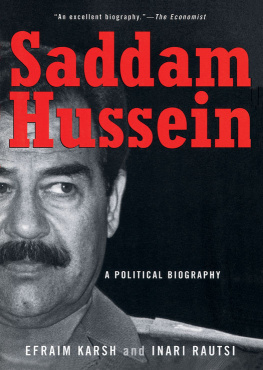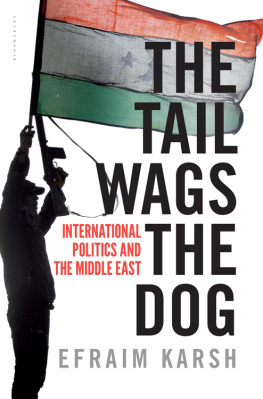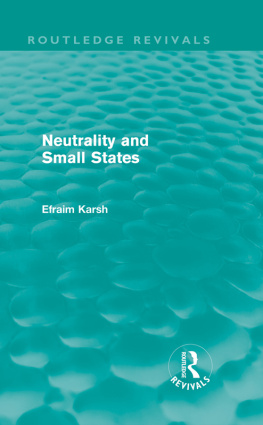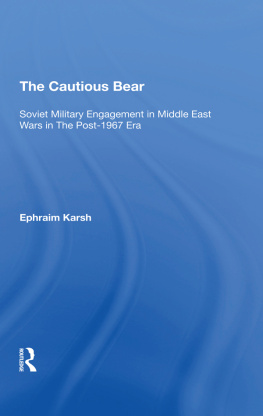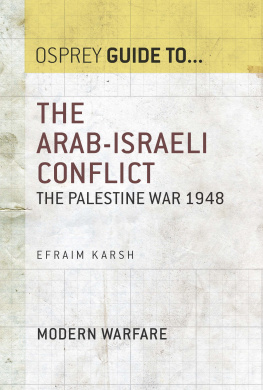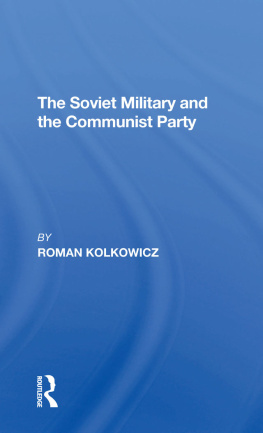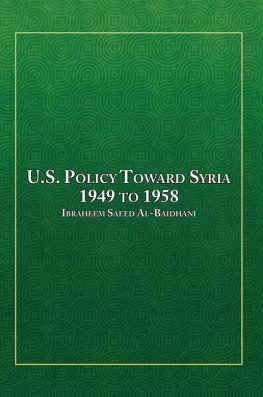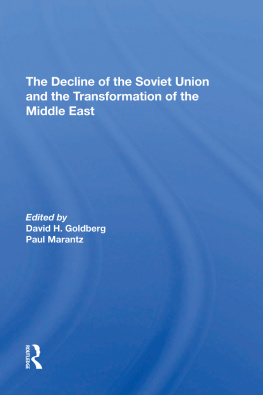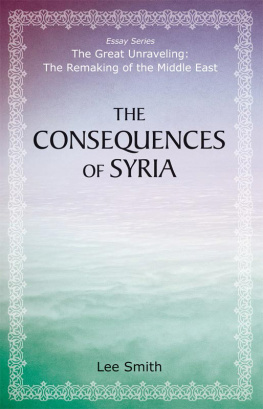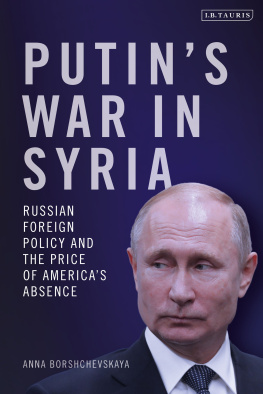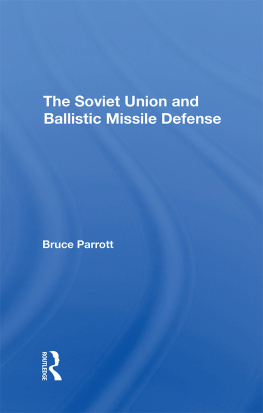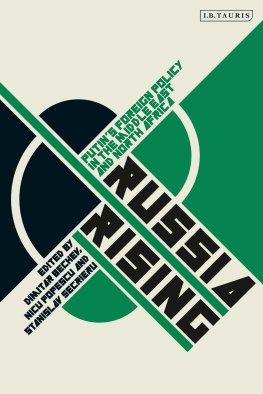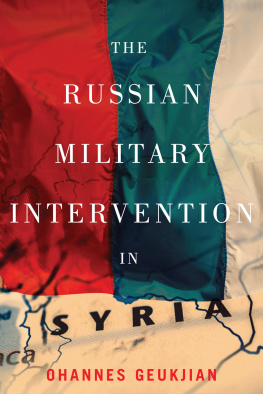ROUTLEDGE LIBRARY EDITIONS: SYRIA
Volume 2
THE SOVIET UNION AND SYRIA
THE SOVIET UNION AND SYRIA
The Asad Years
EFRAIM KARSH
First published in 1988
This edition first published in 2014
by Routledge
2 Park Square, Milton Park, Abingdon, Oxon, OX14 4RN
and by Routledge
711 Third Avenue, New York, NY 10017
Routledge is an imprint of the Taylor & Francis Group, an informa business
1988 Royal Institute of International Affairs
All rights reserved. No part of this book may be reprinted or reproduced or utilised in any form or by any electronic, mechanical, or other means, now known or hereafter invented, including photocopying and recording, or in any information storage or retrieval system, without permission in writing from the publishers.
Trademark notice: Product or corporate names may be trademarks or registered trademarks, and are used only for identification and explanation without intent to infringe.
British Library Cataloguing in Publication Data
A catalogue record for this book is available from the British Library
ISBN: 978-0-415-83882-5 (Set)
eISBN: 978-0-203-77927-9 (Set)
ISBN: 978-0-415-73497-4 (Volume 2)
eISBN: 978-1-315-81898-6 (Volume 2)
Publishers Note
The publisher has gone to great lengths to ensure the quality of this reprint but points out that some imperfections in the original copies may be apparent.
Disclaimer
The publisher has made every effort to trace copyright holders and would welcome correspondence from those they have been unable to trace.
CHATHAM HOUSE PAPERS
THE SOVIET UNION AND SYRIA
THE ASAD YEARS
Efraim Karsh
First published 1988
by Routledge
11 New Fetter Lane, London EC4P 4EE
29 West 35th Street, New York, NY 10001
Reproduced from copy supplied by Stephen Austin and Sons Ltd, Hertford, and printed in Great Britain by Billing & Sons Ltd, Worcester
Royal Institute of International Affairs 1988
No part of this book may be reproduced in any form without permission from the publisher, except for the quotation of brief passages in criticism.
British Library Cataloguing-in-Publication Data
Karsh, Efraim
The Soviet Union and Syria.
(Chatham House papers, ISSN 01435795).
1. Syria. Foreign relations with Soviet Union 2. Soviet Union.
Foreign relations with Syria
I. Title II. Series
327.5691047
ISBN 0415030307
CONTENTS
For Inari
For their helpful ideas and incisive criticism I am indebted to Yaacov Roi, Yahya Sadowski, Fred Halliday and Helena Cobban. I am especially grateful to Alex Pravda, of the Royal Institute of International Affairs, who helped me in many ways throughout the preparation of this study. A special study group organized by the Royal Institute of International Affairs was very useful. A grant by the Kennan Institute for Advanced Russian Studies also contributed significantly in the later stages of the research. The paper is published under the auspices of the Soviet foreign policy programme funded by the ESRC (grant no. E 00 22 2011).
My toughest critic and source of inspiration has been, as always, my wife, Inari.
Chatham House Papers
General Series Editor: William Wallace
Soviet Foreign Policy Programme Director: Alex Pravda
Chatham House Papers are short monographs on current policy problems which have been commissioned by the Royal Institute of International Affairs. In preparing the paper, authors are advised by a study group of experts convened by the RIIA. Publication of the paper by the Institute indicates its standing as an authoritative contribution to the public debate.
The Royal Institute of International Affairs is an independent body which promotes the rigorous study of international questions and does not express opinions of its own. The opinions expressed in this publication are the responsibility of the author.
Alien as it is to Marxist-Leninist ideology, geopolitical thinking has played a focal role in the shaping of Soviet policy towards the Middle East.
A recurrent theme in later Soviet references to the region, the statement provides a striking illustration of the unique position of the Middle East in Soviet political and strategic thinking. To Russia, latterly the Soviet Union, the Middle East is not just another Third World area; it is the area, for no reason other than that it is the most volatile part of the Third World immediately adjoining Russian territory, and as such is a vital component of the Russian defence perimeter.Stability in this context means both the prevention of external great-power intervention and the preservation of a benevolent local environment. In the case of the Middle East, this interest was further reinforced by Russias long-standing desire to control the Bosphorus Straits and the Dardanelles in order to provide an outlet for its naval activities in the rest of the world, as well as to block the passage of European warships into the Black Sea.
This geopolitical reality illustrates the fundamental difference between Soviet interest in the Middle East and that of any other great power: whereas Western interest in the Middle East, however vital, is purely circumstantial, Soviet interest is of a structural nature; whereas Western interest in the area is confined to the global level, the USSR has viewed the Middle East in predominantly regional terms. This is not to deny the relevance of global considerations in the making of Soviet policy towards the Middle East, particularly in the postwar system with its intensifying superpower competition for assets in the Third World. Nevertheless, Soviet policy towards this area has revealed far greater constancy and far less dependence on the fluctuations of global events than Western, and in particular American, policies.


